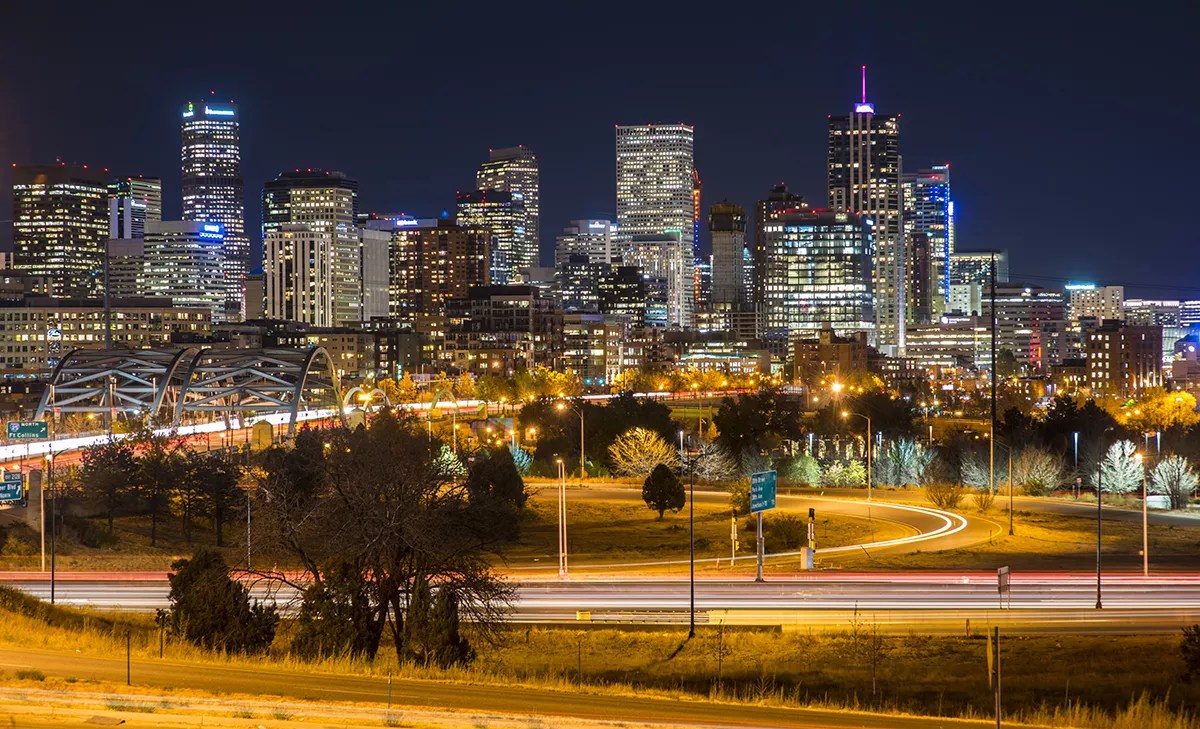
Evan Semón

Audio By Carbonatix
With housing becoming increasingly expensive in Colorado, advocates are pushing a statewide ballot initiative that would earmark $300 million for the build-out of affordable housing.
“The cost of housing has gone up dramatically,” Mike Johnston, president and CEO of Gary Community Ventures, the main financial backer of the “Make Colorado Affordable” initiative, said during an August 4 press conference. “We can’t afford a Colorado where Coloradans can’t afford to live here.”
Johnston, a former state senator and past candidate for Colorado governor and U.S. senator, was joined at the press conference by representatives from Habitat for Humanity of Metro Denver and Housing Colorado, in addition to a Denver teacher and a Salida restaurant owner. The group had just dropped off over 220,000 signatures at the Colorado Secretary of State’s Office; the campaign needs 124,632 valid signatures to qualify for the November ballot.
Initiative 108, as the “Make Colorado Affordable” measure is labeled, would earmark 0.1 of 1 percent of the Colorado income tax and earmark it for affordable housing. That .1 percent would generate $300 million a year, proponents estimate.
The money would go toward building both for-rent and for-purchase affordable housing through a range of mechanisms, including grants to local governments to build housing, gap funding for affordable-housing development projects, and loans for nonprofits. Residents of the resulting units wouldn’t pay more than 30 percent of their monthly income toward rent or a mortgage; people who pay more than 30 percent of their salaries on rent or mortgage each month are “cost-burdened,” according to the U.S. Department of Housing and Urban Development.
“What we know is that more than 50 percent of Coloradans can no longer afford to live here,” Johnston said, referencing those who are cost-burdened in Colorado. “This would be a five times increase on what the state is currently spending on affordable housing, and it creates a permanent and sustainable revenue source that we know will be here year in and year out.”
To access that funding, local governments would need to show that they’re fast-tracking the approval process for affordable-housing projects.
The initiative seeks to address a perfect storm that has led to the current affordability crisis in Colorado: Wages have not risen fast enough to keep up with housing prices, and the state did not build enough housing over the last decade to keep up with a growing population.
According to Johnston, Colorado needs to build 170,000 affordable units to meet population needs over the next two decades.
The Make Colorado Affordable campaign shared statistics that indicate the median single-family home in Colorado will cost close to $1.7 million by 2032. That means the prospective buyer of such a home would need an annual income of at least $372,000 to qualify for a thirty-year mortgage. The median rent in Colorado would be $2,700, these stats predict, which would require an annual income of at least $106,000.
Although the measure would not raise taxes, it would affect how much money is sent back to taxpayers in TABOR refunds.
“It pulls that $300 million out of the general fund,” Johnston explained. “By the voters approving the use of that, it de-Bruces that $300 million, which means that doesn’t count toward the TABOR cap anymore. So there’s now $300 million more space in the budget that allows $300 million of what could be refunds to drop into the general fund so the general fund stays whole.”
The initiative has already drawn the ire of Advance Colorado Action‘s Michael Fields. “There is nothing ‘affordable’ about taking $300 million of our TABOR tax refunds for a flawed housing measure,” he said in response to the announcement. “To fix our state’s housing crisis, we need to build more, not tax more. Coloradans are struggling – and they want their full TABOR refund in upcoming years.”
But Rob Gartzman, a restaurant owner in Salida, believes the ballot initiative is needed. “Our workforces were struggling to find affordable housing,” he said during the press conference. “We’re talking about creating homes expressly meant for hard-working Coloradans.”